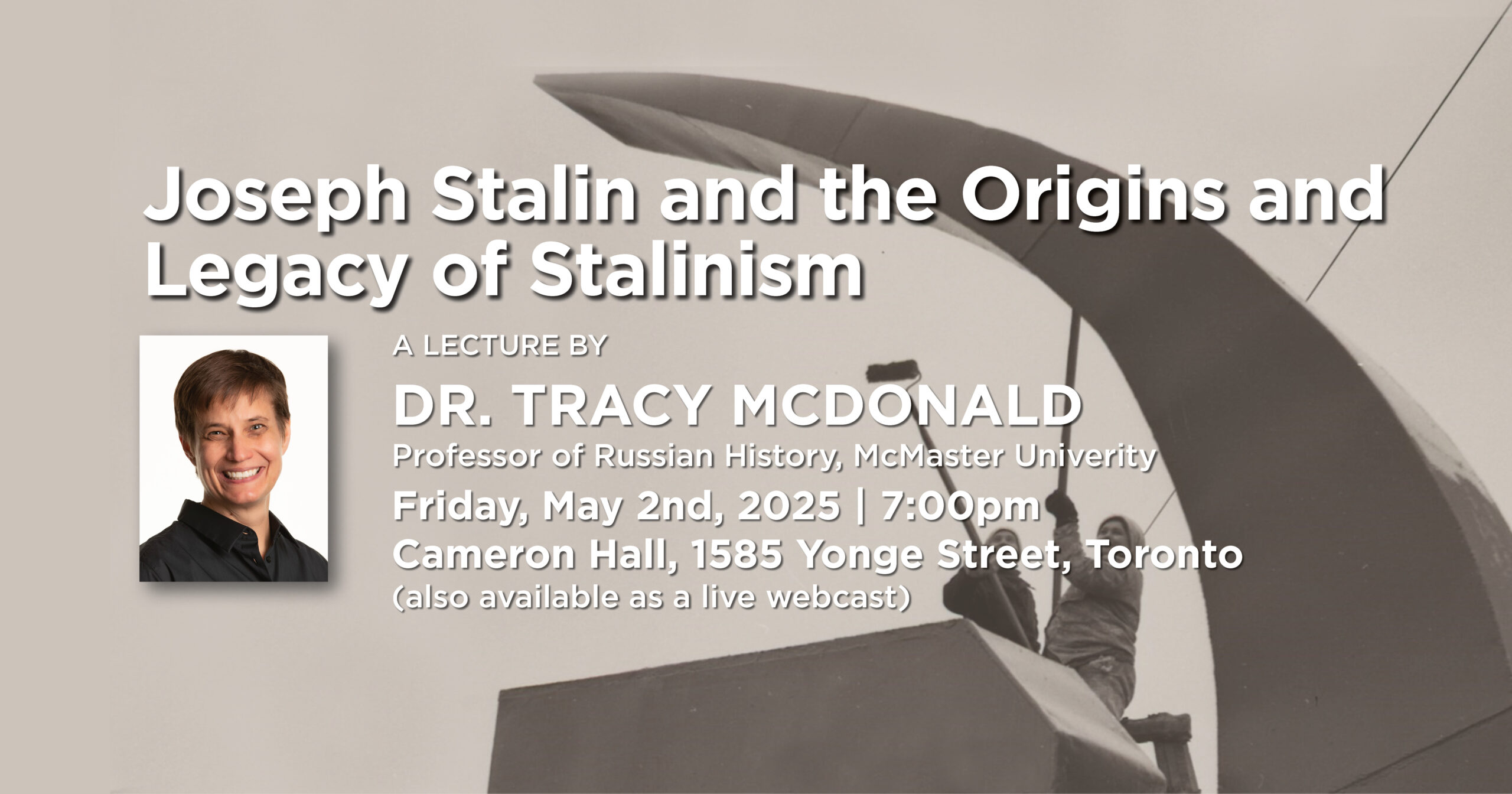
- This event has passed.
Joseph Stalin and the Origins and Legacy of Stalinism

Donations at the door or when you watch online are voluntary and only partially cover program costs. If you agree that continuing education is worth the investment, we’d love to hear from you.
A new browser tab will open the Yorkminster Park Canada Helps donation page, please select YP Speakers Series from the dropdown menu.
Under Georgian born Ioseb Besarionis dze Jughashvili (transliterated from Georgian) or Joseph Vissarionovich Dzhugashvili (transliterated from the Russian variant), better known to the world as Joseph Stalin, the Soviet Union reached the zenith of authoritarianism. This lecture examines how historians have debated the origins of Stalinism and the legacy of Stalinism after his death. Historians variously trace the origins of Stalinist policies to a Tsarist legacy, the violence of the First World War and the civil war that followed it, Communism or Marxism as an ideology, Bolshevik belief, or a combination of factors. The lecture then turns to debates on the nature of “De-Stalinization” under Nikita Khrushchev and the apparent return to authoritarianism after Khrushchev’s death.
Tracy McDonald is an historian of Russian and the Soviet Union at McMaster University in Hamilton, Ontario. She is the author of Face to the Village: The Riazan Countryside Under Soviet Rule, 1921—1930 (University of Toronto Press, 2011), co-editor with Daniel Vandersommers of Zoo Studies: A New Humanities (McGill-Queens University Press, 2019), and co-editor with Heather DeHaan and Dan Healey of Other Voices in Soviet History: Collected for a Devil’s Advocate (McGill-Queens University Press, 2024). In 2019-2020, she curated an art exhibition at the McMaster Museum of Art under the title, “Animals Across Discipline, Time, and Space,” which ran from 4 January until the first Covid lockdown in March. McDonald was one of the three founding members of the independent documentary-film company, Chemodan Films. Between 2004 and 2009 she participated in the making of four films including Province of Lost Film, Uprising, and Photographer.

